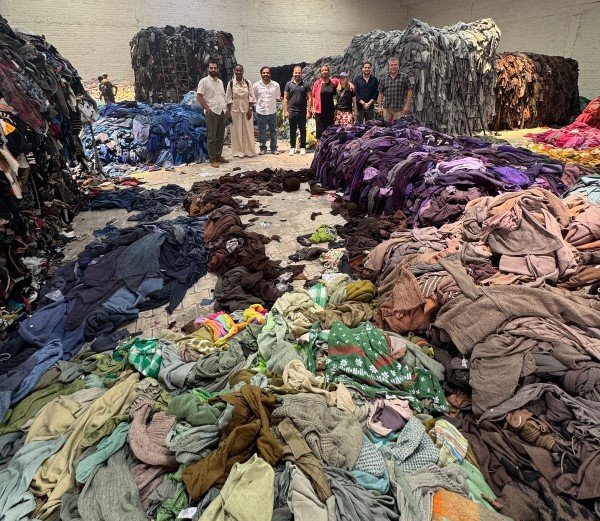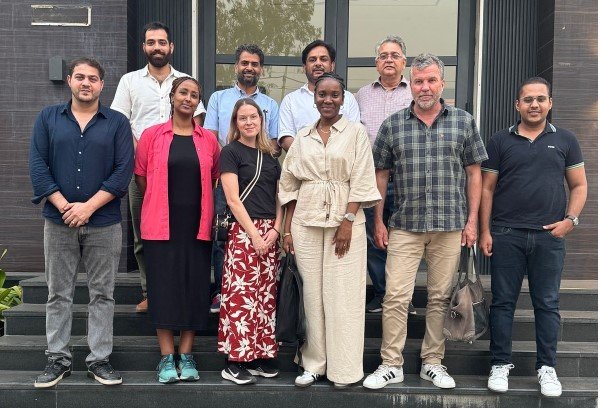In a significant step toward reshaping the global textile industry, representatives from the H&M Foundation and Global Fashion Agenda (GFA) recently visited Panipat, India—one of the world’s most vital textile recycling centers—hosted by the Global Alliance for Textile Sustainability Council (GATS). This visit highlights a growing commitment to build sustainable, inclusive, and circular models for textile production and recycling.
The delegation included Carola Tembe, Jodith Tesfai, and Elin Hallerby from the H&M Foundation, along with Lennart Bernhoft from GFA. They were welcomed by GATS Chairman Parvinder Singh and his team, including Harshit Kakkar, Archish Kansal, and Sanjay Chauhan.

Parvinder Singh has played a pivotal role in uniting global brands, recyclers, and policymakers to create a collaborative ecosystem in Panipat that balances innovation, environmental care, and social equity. The delegation toured Panipat’s full-spectrum textile waste recycling supply chain, gaining insights into its closed-loop systems and community-focused practices.
The visit focused on three key areas for advancing the sector:
- Scaling Up Textile Recycling – Exploring methods to dramatically increase the volume and efficiency of textile waste recycling.
- Increasing Economic Viability – Developing new business models that make recycled textiles more profitable and attractive for stakeholders.
- Empowering the Workforce – Emphasizing better livelihoods, safety, and protections for workers, especially those in informal recycling roles.
GATS also outlined its broader ambition to evolve Panipat from a recycling hub into a sustainable sourcing center for apparel, extending its traditional expertise in home textiles. This shift would position Panipat as a global leader in responsible and affordable apparel production, driven by circularity and compliance.

The delegation’s visit also underscored the success of GFA’s “Green Threads & Weaves” initiative with the Foundation for MSME Clusters, which strengthens local enterprise sustainability. Under Singh’s leadership, GATS is enabling transformative partnerships and scalable pilots that demonstrate how sustainability, economic performance, and social inclusion can coexist in fashion’s future.
This collaborative mission marks a deepened commitment to scalable, replicable models in the textile sector that place environmental stewardship and human dignity at their core. Panipat now stands as a promising blueprint for sustainable transformation in global fashion.
